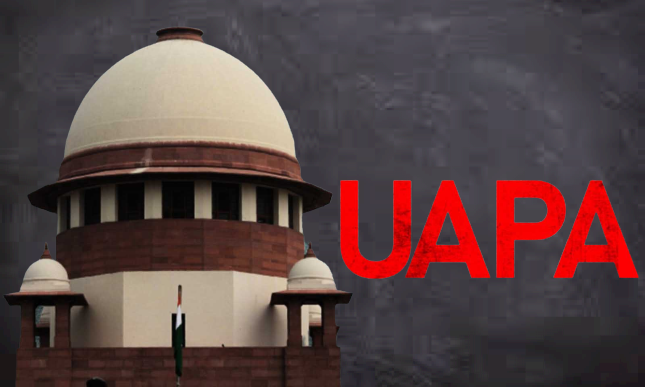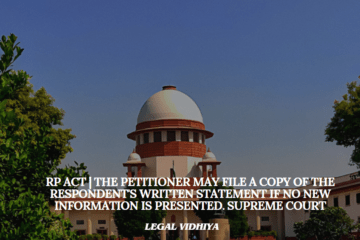
The supreme court on Friday ruled that mere membership of a banned organisation is a crime punishable by imprisonment under the provisions of the suppression of Prohibited Activities Act. The supreme court ruled that its three verdicts 2011 rulings by two panels of judges ruled that mere membership of a banned organization does not incriminate a person unless they use or incite violence or commit an act intended to create disorder or disturbance of public peace by restoring to violence, “is not a good law”.
The judgment on Friday was based on an appeal filed in 2014.
The purpose of the UAPA is to adjudicate certain illegal activities present and prevent them at the expense of repetition, the UAPA’S purpose is to sanction a person who is a member of an illegal organisation under the implementation of the provisions of the UAPA. Section 10(a)(1) of the UAPA is fully consistent with Articles 19(1)(a) and 19(2) of the constitution and thus consonance with the purpose of the UAPA, the court said.
The decision of a panel of three judges, Justice MR Shah, Justice CT Ravikumar, and Justice Sanjay Karol, regarding the appeal of a two-judge panel, determined that being a member of a prohibited organization alone would render an individual as a criminal and would be prosecuted under the provisions of UAPA
The panel declared that the previous judgments made by the high court, based on the two-judge verdicts in 2011 regarding belonging to forbidden groups, are legally bad in law and overruled.
The supreme court said the 2011 rulings were based on US court decisions, which could not be done without considering conditions in India. “In India, the right to freedom of speech and expression is not absolute and is subject to reasonable limits. However, US court rulings could be an indicator,” the bench said.
“If an association is declared illegal by an order made under section 3 of UAPA. a person who is and remains a member of such association shall be liable to imprisonment for a term which may extend to two years and shall also be punishable under UAPA section 10 (a)(1), fined in 1967”, the court said.
“As per section 10(a)(1), a person cannot be penalized simply for being a member of such an illegal association.
The language of section 10(a)(1) is also very cautiously worded, “who is and continues to be a matter of this association. Thus, if a person was a member but does not remain a member after the declaration, that does not constitute a violation of section 10 on the true interpretation.
The court reviewed three of its 2011 Judgments: –
State of Kerala v. Raneef; Arup Bhuyan v Union of India and Indira das v Star of Assam
Written by Anushka 2nd semester ( RNB GLOBAL UNIVERSITY)




0 Comments